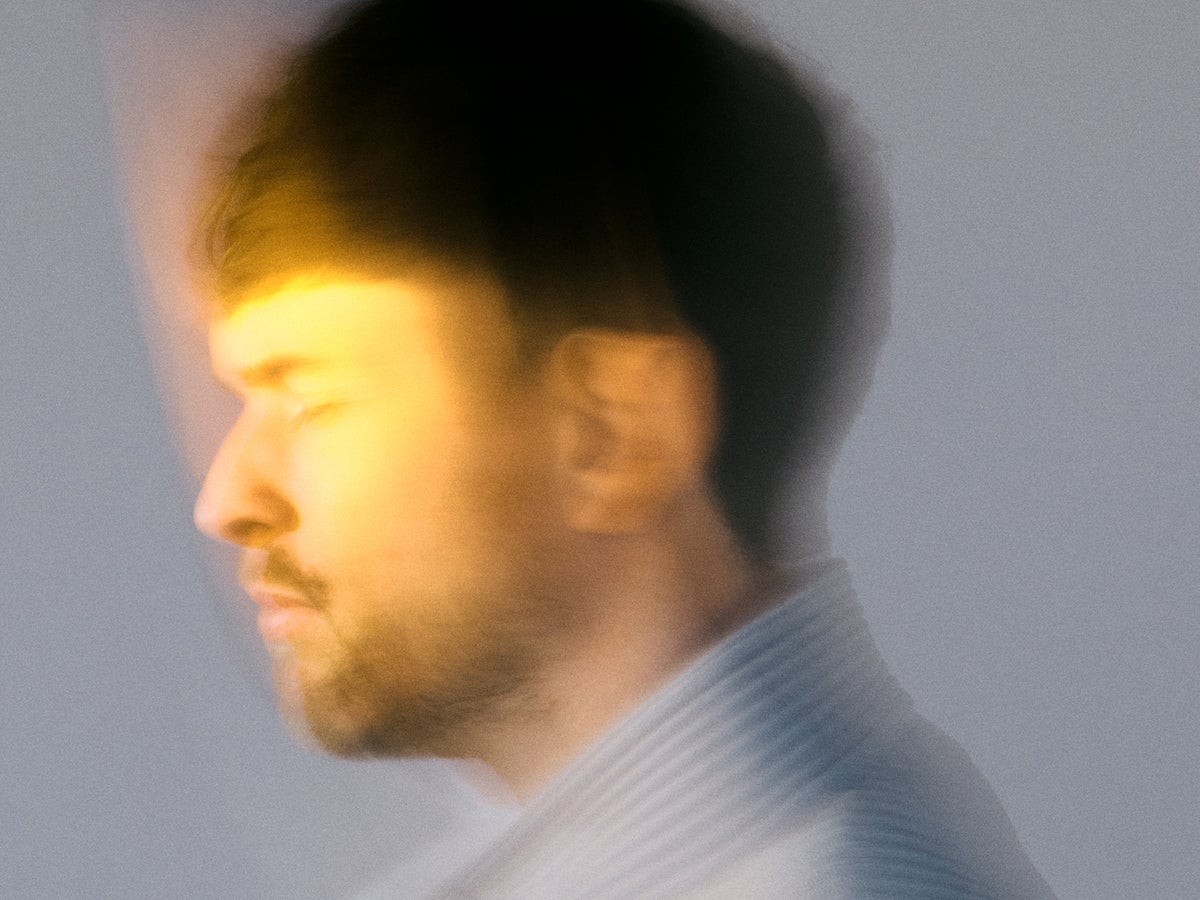
Confirming suspicions that all electronic acts have a hidden reset button, on Playing Robots into Heaven, James Blake reverts to factory settings. North London’s minimalist electro-R&B maestro has enjoyed a glittering career since channelling his early experimental work into a more defined ambient soul and gospel songcraft on his self-titled 2011 debut album – like the ghost of Anohni materialising from synthetic mist. He’s worked with Beyonce, Jay-Z, Kendrick Lamar, RZA, Brian Eno, Kanye West, Travis Scott, and Bon Iver’s Justin Vernon, picked up the Mercury Prize for his 2013 second album Overgrown, received plentiful Grammy nods, and generally become the toast of the introvertronica set.
Whether seeking relief from such high-altitude pressure or a reconnection with his roots, though, Blake has rebooted. Ditching all guest appearances, he follows last year’s Wind Down – an ambient record made with a German AI company to help listeners fall asleep – with a sixth album harking back to his 2010 pre-fame EPs such as The Bells Sketch, CMYK and Klavierwerke, recorded at a time when Blake was merging two-step garage, UK bass, trip-hop and R&B into a formative style coined, at the time, as post-dubstep.
Deconstructing his melodic persona, Blake seems to cast snippets of fragile, manipulated soul songs into the machine, there to be sometimes buoyed, sometimes brutalised. Opener “Asking to Break” sets the tone: Blake duets with a forlorn android torch singer, couched in somnambulant static. Sensitive dance elements soon intrude – considering the warped orchestral drama and angelic echoes circling the scuttling beats of “Loading”, this is Enya with a capital E, while “Tell Me” resembles a Bon Iver tune that’s been faxed to an S&M rave club three floors beneath East Berlin.
Blake clearly revels in the invention and freedom of the exploit. “Fall Back” comes across as a very organic, found-sound kind of ambient concoction, as if someone has worked out how to recycle DJ software out of firewood and hemp. “Big Hammer” encases a ragga rap track in a cold future-industrial sheen. “He’s Been Wonderful”, meanwhile, is essentially what the aliens will hear when they use their advanced machinery to try and play the old Seventies soul cassettes they discover under the rubble of Chicago.
As the album progresses into more background textures, it becomes easy to forget Playing Robots into Heaven is still playing, but an emotional twist awaits. Following on from “Fire the Editor”, the world’s most despondent bite-back against bad press ever recorded (“If I see him again, best believe me, we’ll be having words,” Blake threatens, shaking a frail fist out of the floatation tank), is “If You Can Hear Me”, a haunted open letter to his estranged father, the prog rock guitarist and singer James Litherland. Blake has previously honoured his musical heritage by adapting his dad’s song “Where to Turn” into 2011 single “The Wilhelm Scream”, but here he unravels a darker musing on genetic obsessions both musical and emotional. “I followed your lead…I followed your dream,” Blake sings, over muted and broken piano, “I chased it all too far”. Hopefully this inspired reset gives him refreshing pause.
‘Playing Robots into Heaven’ is out on 8 September via Republic and Polydor







